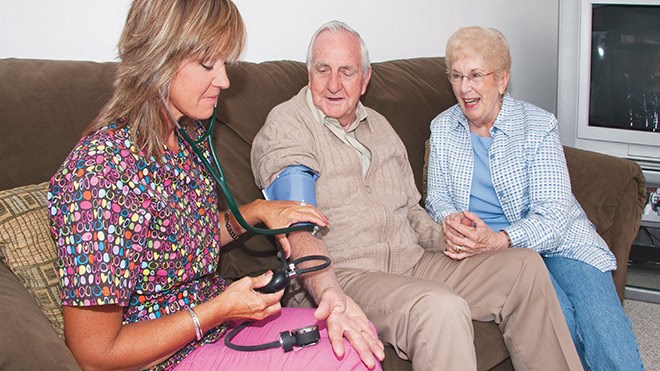Nearly half a million Canadians who needed help or home care for a chronic condition did not receive it, according to a new Statistics Canada study.
The study, titled “Canadians with unmet home care needs”, used data from Statistics Canada's 2012 General Social Survey to draw its conclusions.
In that year, 2.2 million people, or roughly eight per cent of Canadians 15 years of age or older, received help or care at home because of a long-term health condition, a disability or problems due to advanced age.
Around 461,000 people in the same age group did not receive any of the help they needed for their chronic conditions.
Of the 2.2 million Canadians who received care at home, 331,000 did not receive all the help they needed.
“Given the aging population, meeting the needs of individuals with reduced autonomy or those who are limited in their daily activities is a challenge – especially when a person is facing a declining autonomy and has a lot of needs,” the study said.
People with lower incomes, and those between the ages of 55 and 64 were more likely to have their home-care needs unmet.
New immigrants were also more likely to be among the 461,000 Canadians who did not receive help for their chronic conditions.
But according to Statistics Canada's General Social Survey, of the people who had their health-care needs unmet, fewer than 290,000 asked for help from a family member or an organization.
Home-care recipients with a physical disability were more likely to have their needs only partially met.
“The higher prevalence of partially met needs among care receivers with a physical disability may be the result of these recipients needing more help than their family and friend caregivers or professionals were able to provide,” the study said.
As with the 461,000 Canadians with unmet needs, care recipients with lower household incomes were less likely to have all their needs met.
Join Sudbury.com+
- Messages
- Post a Listing
- Your Listings
- Your Profile
- Your Subscriptions
- Your Likes
- Your Business
- Support Local News
- Payment History
Sudbury.com+ members
Already a +member?
Not a +member?
Sign up for a Sudbury.com+ account for instant access to upcoming contests, local offers, auctions and so much more.
